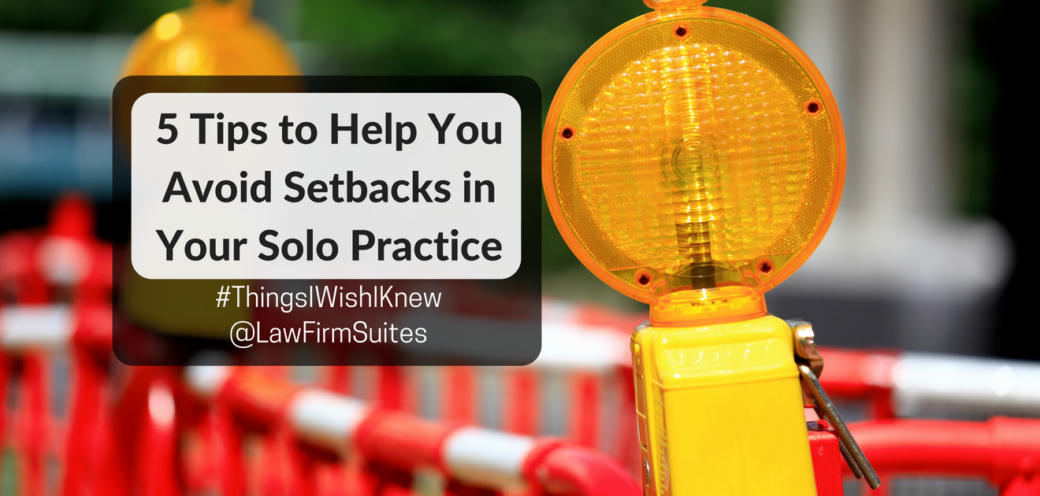In this week’s edition of Things I Wish I Knew, New York lawyer Joleena Louis shares five helpful tactics she uses to proactively avoid setbacks in her solo practice.
Solos are constantly “putting out fires.” It’s one of the biggest productivity killers and prevents us from getting real work done.
It’s an easy trap to fall into when you’re managing your practice, keeping track of finances and marketing, all while staying on top of a heavy caseload.
All kinds of emergencies come up that you have to deal with. The result: missed deadlines or working very long hours to catch up.
None of this is good for your practice or your sanity.
Here are some tactics I use to be proactive, rather than reactive, in my solo practice:
1. Schedule time to be inaccessible
Just because it’s an emergency to your client, opposing counsel, or anyone else, does not mean it is an emergency for you.
Very rarely should you have to drop everything and deal with a problem. The reason we do this is because when you learn of the problem, we can’t get it out of our heads, forcing us to handle it right away.
I combat this issue by limiting my time for taking phone calls or checking emails. If I am working on an important task, I’ll put my phone on airplane mode and turn off email notifications. You can’t be distracted if you’re not accessible.
My clients realize I am often in court and they know their call will be returned as soon as I am available. But you could also change your voicemail and set an email responder stating when you will be available that day; or, if you want your calls or emails screened by a real person for emergencies, you can hire an answering service or Virtual Assistant and give them a way to contact you for issues that truly cannot wait.
2. Predict & Prevent
Another way to be proactive is to predict and prevent. Learn to anticipate problems and issues that normally occur in your practice.
For example, some of my clients will call daily if we are waiting to hear back about a settlement proposal. Instead of taking these calls throughout the day, I’ll contact them on Monday and let them know that I’ll follow up again on Thursday if I don’t hear anything.
They know exactly when they will hear from me and I don’t have to deal with constant calls and emails requesting an update.
3. Plan your priorities
Many solo’s spend time putting out little fires because they don’t have a structured plan for what needs to be done.
If you know what your priorities are for the week, it’s easier to determine what can wait. I tackle this issue by setting aside an hour every week (usually Friday) to plan what I need to do next week.
I go through my case list and note next steps for each case, double check my calendar, and clean out my briefcase and inbox. Then I list my priorities for the week and schedule time to complete them on my calendar.
Planning ahead allows you to make time to finish important tasks before they become “fires.”
4. Have systems in place
Having systems in place keeps you organized and eliminates mistakes. Often the fires we have to put out are created by forgetting a step and having to scramble at the last minute to complete it.
Having systems or checklists will help ensure that every task is completed to the standard you set and, if your system is documented well, you can easily delegate the task and get consistent results.
5. Do the work
One of the benefits of being self-employed is the ability to set your own schedule and basically, do what you want. For example, if you decide to go on a long lunch with your friend instead of finishing that motion like you planned, you are setting yourself up for a reactive situation.
Planning and systems don’t work unless you do.
Taking a little time to be proactive will save you from being trapped in reactive setbacks. Planning and prevention are the keys to being productive as a solo and will help take your practice to the next level.


